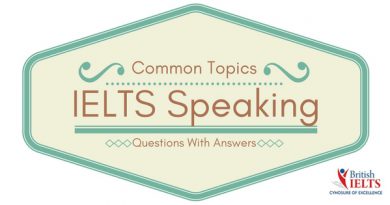3 Hacks to Make the IELTS Speaking Section a Piece of Cake
Unless, you are born and raised in a region where English is a primary language, having some sort of command over spoken English is still a dream for most. Therefore, it’s not the written, reading or the listening, the speaking part of the IELTS is a stumbling block for most applicants. Since speaking section is the only time the candidate is face-to-face with the examiner, the likelihoods are high he or she will get nervous. You can see how’s your performance has been so far, seeing the face of the interviewer. Thus, this may further hamper your IELTS high bands, dreams down the flames. Here we’ve listed top three tips to turn the tides in your favour for the IELTS speaking exam:
1. Not Study Just Practice
Though there are many books and sufficient study material out there for you to prepare for the IELTS exam, practice is the master key to ultimate success. You can learn how to speak English- a few words or lines, but not as a native speaker. One can’t judge his or her English proficiency without conversing in English within a group of people or a special friend. Don’t throw in the towel, coming across to some ruthless comments regarding your spoken English; like a labour, wait to reap fruits of your hard work.
2. Fluency Is Better Than Fumbles
Technically, both vocabulary and fluency carry equal weight in grading for IELTS. Even though, it’s always better to be fluent rather than speak English with a plethora of fumbles. You can make a great impression in the mind of your examiner by just being fluidic while speaking with one or two catchwords. Instead of mulling over synonyms and high vocabulary punches. And, in fact, when you speak fluent for a good duration, you might hit upon on some strong vocab words.
3. No Monotone
Nothing is duller and more yawns prompting than a flock speaking bland-tone English monotonously in front of you. Even, he or she is speaking true, and the vocabulary is up to the mark, it seems as the guy is not confident and fluent in English. Periodically changing sound will make you sound fluent, confident, and interesting.
These are just a few of IELTS speaking tips, for complete preparation for IELTS, join British IELTS classes.




